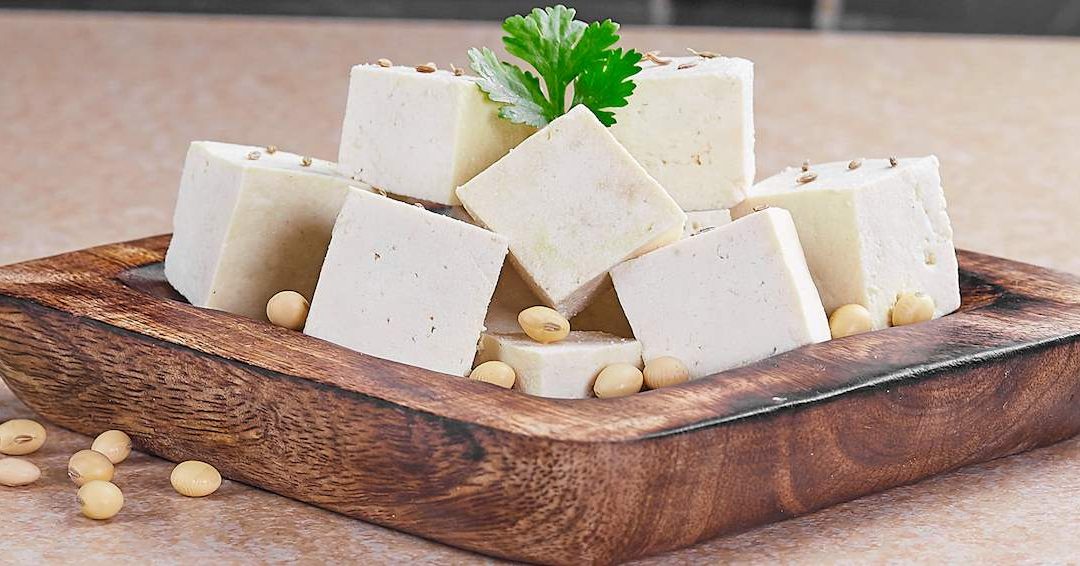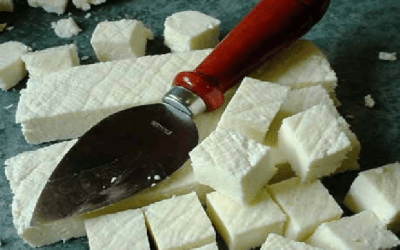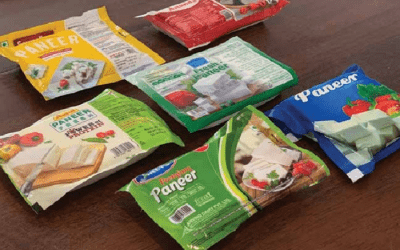Paneer is a byproduct obtained from milk by precipitation with sour milk, lactic acid, or citric acid. In simple terms, paneer is an indigenous milk product prepared by the combined action of acid coagulation and heat treatment of milk and the subsequent drainage of whey.
HOW TO MAKE PANEER?
To prepare paneer, food acid (usually lemon juice, vinegar, citric acid or yogurt) is added to hot milk to separate the curds from the whey. The separated curd is pressed in muslin or cheesecloth and the excess water is drained out. The resulting paneer is dipped in chilled water for 2–3 hours to give it a good texture and appearance.
PANEER NUTRITION FACTS
-> PROTEIN IN PANEER
It is a rich source of protein. The high protein component of paneer also helps in slowing the release of sugar into the blood and prevents abrupt hike and decline in blood sugar levels.
-> CALCIUM IN PANEER
Paneer, like other milk products, is a good source of calcium and its consumption helps in preventing osteoporosis.
-> FAT IN PANEER
While high in fat, paneer works for people who have an active lifestyle as they will burn those calories easily and gain its nutrients. Paneer may help protect against heart disease by lowering the fat deposition in the arteries.
Paneer derived from milk contains mainly milk fat, which is essential for better health. The percentage of milk fat in paneer depends on how fresh the milk is as well as milk composition. As per the national standards, paneer should contain at least 50 per cent milk fat when measured on dry basis.
The whey (remaining liquid part while making paneer) cleanses the bladder and helps prevent bladder infections.
Consumer Voice Tested 8 brands of Fresh paneer including milk fat, protein and calcium content. Click here to know the best fresh paneer brands in India.
HOW TO BUY AND STORE PANEER?
Consumers are advised to buy paneer (preferably packaged) kept in a refrigerated condition. Paneer available in open form should be avoided for consuming in raw form.
Most edible products are normally contaminated with microbes (or microorganisms). They are so small that we need a microscope to see them. Microbes include bacteria, yeast, mould, algae, and protozoan. However, the organisms that normally contaminate and spoil foods are the bacterium with yeast and moulds of secondary importance. Under normal conditions, microbes feed on the food in which they live and reproduce and cause a variety of changes in the food, most of which result in a loss of the food’s quality. As per the regulations, there’s an acceptable standard limit of microbes prescribed for each food item.
Only 3 out of 8 brands tested at NABL accredited labs passed all the microbiological test. Find out the safest brands of fresh paneer brands of Indian here.



